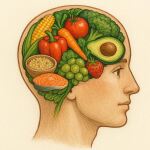Can happiness be measured? What do the experts say?
Can happiness be measured? Discover what experts say and how to boost it with habits, avoiding unrealistic expectations. Get informed here!...
Table of Contents
- The relentless pursuit of happiness
- Happiness and its stages
- The science behind happiness
- Breaking Myths about Happiness
Follow Patricia Alegsa on Pinterest!
The relentless pursuit of happiness
Who hasn't heard the famous phrase "I want to be happy"? It seems like a mantra in our society, right? However, experts warn us that this pursuit can become a labyrinth with no exit.
Why? Because, by focusing on happiness as a final goal, we create expectations that often turn out to be unattainable.
Happiness is not a trophy we can win; rather, it is a way of life that requires habits and attitudes that we cultivate day by day.
As psychologist Sebastián Ibarzábal rightly points out, happiness is often associated with external factors such as freedom of expression and a long life. But what happens when those factors are not present?
As psychologist Sebastián Ibarzábal rightly points out, happiness is often associated with external factors such as freedom of expression and a long life. But what happens when those factors are not present?
Focusing on happiness as an absolute state can lead us to frustration.
So, instead of thinking about being happy, why not think about being more specific? What would you really like to achieve? Perhaps you want a family, a job that you are passionate about, or simply to enjoy your day-to-day life more. Doesn't that sound more appealing?
The true secret of happiness: beyond yoga
Manuel González Oscoy reminds us that happiness has different stages. Sometimes, we compare ourselves to others, which can make us feel like we are in an endless race.
The true secret of happiness: beyond yoga
Happiness and its stages
Manuel González Oscoy reminds us that happiness has different stages. Sometimes, we compare ourselves to others, which can make us feel like we are in an endless race.
As we move through life, our expectations change, and what once made us happy may fall behind. Does that sound familiar? The important thing is to understand that there is no single way to be happy.
Moreover, academic Hugo Sánchez emphasizes that experiencing a range of emotions, from sadness to joy, is normal and healthy. Life is not an eternal carnival, and that’s okay.
Moreover, academic Hugo Sánchez emphasizes that experiencing a range of emotions, from sadness to joy, is normal and healthy. Life is not an eternal carnival, and that’s okay.
Accepting our emotions instead of fighting against them allows us to adapt better to our surroundings. So, do we really need to be happy all the time? The answer is a resounding no.
The science behind happiness
The measurement of happiness is quite a topic. There are global reports that rank countries based on their happiness, and while they can be useful, they also create expectations that, if not met, can disappoint people.
The 2024 report, for example, shows that Finland remains the happiest country. But what does that mean for us? Happiness cannot be standardized. Therefore, each of us must find our own path.
Arthur C. Brooks and Oprah Winfrey point out that happiness is not a final destination, but a daily construction.
Arthur C. Brooks and Oprah Winfrey point out that happiness is not a final destination, but a daily construction.
It is more like a puzzle that we piece together with small bits of everyday satisfaction. And while some studies suggest that being sociable and maintaining a positive attitude are key, others indicate that practices like meditation do not always yield the expected results.
Daily habits that will make your life happier
The constant desire to be happy can lead us to rumination, a process where we overthink what we lack. Has this happened to you? The pressure to be happy can be overwhelming and, in many cases, counterproductive.
Daily habits that will make your life happier
Breaking Myths about Happiness
The constant desire to be happy can lead us to rumination, a process where we overthink what we lack. Has this happened to you? The pressure to be happy can be overwhelming and, in many cases, counterproductive.
Boris Marañón Pimentel suggests that happiness should not be measured only in material terms, but that it also includes subjective and cultural aspects.
Finally, the happiness report in Argentina 2024 reveals that only 1 in 3 Argentinians feels satisfied with their life. This makes us reflect on the importance of questioning our expectations and adopting a more realistic perspective on what it means to be happy.
So, instead of chasing happiness as if it were a goal, how about we start enjoying the process? Happiness, after all, may be closer than we think.
Finally, the happiness report in Argentina 2024 reveals that only 1 in 3 Argentinians feels satisfied with their life. This makes us reflect on the importance of questioning our expectations and adopting a more realistic perspective on what it means to be happy.
So, instead of chasing happiness as if it were a goal, how about we start enjoying the process? Happiness, after all, may be closer than we think.
Subscribe to the free weekly horoscope
Aquarius Aries Cancer Capricorn Gemini Leo Libra Pisces Sagittarius Scorpio Taurus Virgo
-
 Habits that seem good, but are not
Habits that seem good, but are not
"It's not always worth being so kind, here we show you habits that you probably have and that are not so good." -
 5 ways to produce dopamine naturally according to science
5 ways to produce dopamine naturally according to science
Increase your dopamine naturally! Discover science-backed habits to improve motivation and well-being, from food to your daily routines. -
 How to Transform Your Home: The 5 Keys of Vastu Shastra, the Hindu Feng Shui
How to Transform Your Home: The 5 Keys of Vastu Shastra, the Hindu Feng Shui
Discover how to harmonize your home with the 5 keys of Vastu Shastra, the 'Hindu Feng Shui.' Activate positive energy using the elements and their symbolism. -
 The mistakes that prevent you from finding love according to your zodiac sign
The mistakes that prevent you from finding love according to your zodiac sign
Discover the mistakes that are keeping you away from love according to your zodiac sign Don't let fate get in the way of your happiness in love! -
 How to forgive yourself as you do with others
How to forgive yourself as you do with others
We forgive others quickly for causing us distress and betrayal, but we forget to offer ourselves that same patience and understanding.
I am Patricia Alegsa
I have been writing horoscope and self-help articles professionally for over 20 years.
Subscribe to the free weekly horoscope
Receive weekly in your email the horoscope and our new articles on love, family, work, dreams and more news. We do NOT send spam.
Astral and numerological analysis
-
 Discover your future, secret personality traits and how to improve in love, business and life in general
Discover your future, secret personality traits and how to improve in love, business and life in general
-
 Online Dream Interpreter: with artificial intelligence
Do you want to know what a dream you had means? Discover the power of understanding your dreams with our advanced online dream interpreter using artificial intelligence that responds to you in seconds.
Online Dream Interpreter: with artificial intelligence
Do you want to know what a dream you had means? Discover the power of understanding your dreams with our advanced online dream interpreter using artificial intelligence that responds to you in seconds.
-
 Discover mental menopause in women
Discover mental menopause in women
The mental fog, insomnia, and mood swings that women experience during menopause are real, according to the latest scientific research. I'll tell you about it in this article. -
 Overcome discouragement: strategies to lift yourself emotionally
Overcome discouragement: strategies to lift yourself emotionally
"I may stumble at times, but that doesn't stop me. I always strive to get back up and keep moving forward." -
 Find out which zodiac signs make friends easily and who are the most social
Find out which zodiac signs make friends easily and who are the most social
Discover the ranking of the most sociable signs to make friends. Find out which are the easiest to connect with and establish relationships with. -
 Why you have been unhappy lately according to your zodiac sign
Why you have been unhappy lately according to your zodiac sign
Find out what could be causing your recent unhappiness according to your zodiac sign - don't miss it! -
 Writing an intimate diary helps to grow internally
Writing an intimate diary helps to grow internally
Discover how an intimate diary enhances children's emotional development, helping children effectively express their fears and dreams. -
 Improve Your Memory and Concentration: The Secret of Multicomponent Fitness
Improve Your Memory and Concentration: The Secret of Multicomponent Fitness
Improve your memory, concentration, and physical skills. Discover how multicomponent activity can prolong your life and autonomy according to expert Marzo Grigoletto. -
 How your zodiac sign can be ruining your relationships in a toxic way
How your zodiac sign can be ruining your relationships in a toxic way
Find out what toxic behaviors you are committing in your love relationships according to your zodiac sign. Avoid ruining your emotional bonds with these tips! -
 What does it mean to dream of statues?
What does it mean to dream of statues?
Discover the hidden meaning behind your dreams with statues - do they represent your goals and ambitions or your fears and anxieties? Read our article to find out more! -
 Brain Diet: 7 Foods Against Dementia and Cognitive Decline
Brain Diet: 7 Foods Against Dementia and Cognitive Decline
Brain Diet: 7 Foods That Protect Your Memory and Prevent Cognitive Decline and Dementia. Experts Reveal Key Habits in Midlife. -
 Dog 2.0! Canine Biological Evolution Accelerates and Surprises Science
Dog 2.0! Canine Biological Evolution Accelerates and Surprises Science
Dogs are evolving! Some breeds are adapting to the modern world, marking the future of domestication with exceptional skills. ?✨ -
 Do we drink too much alcohol? What science says
Do we drink too much alcohol? What science says
Recent research on how much alcohol we should consume to reduce risks. New studies highlight the serious implications for public health. Stay informed! -
 What does it mean to dream of clouds?
What does it mean to dream of clouds?
Discover the meaning behind your dreams with clouds. Do they represent opportunities or challenges? Our article tells you all about it - come in and find out more! -
 Discover the darkest part of you according to your zodiac sign
Discover the darkest part of you according to your zodiac sign
Discover your most mysterious characteristics according to your zodiac sign - be surprised by what we reveal!